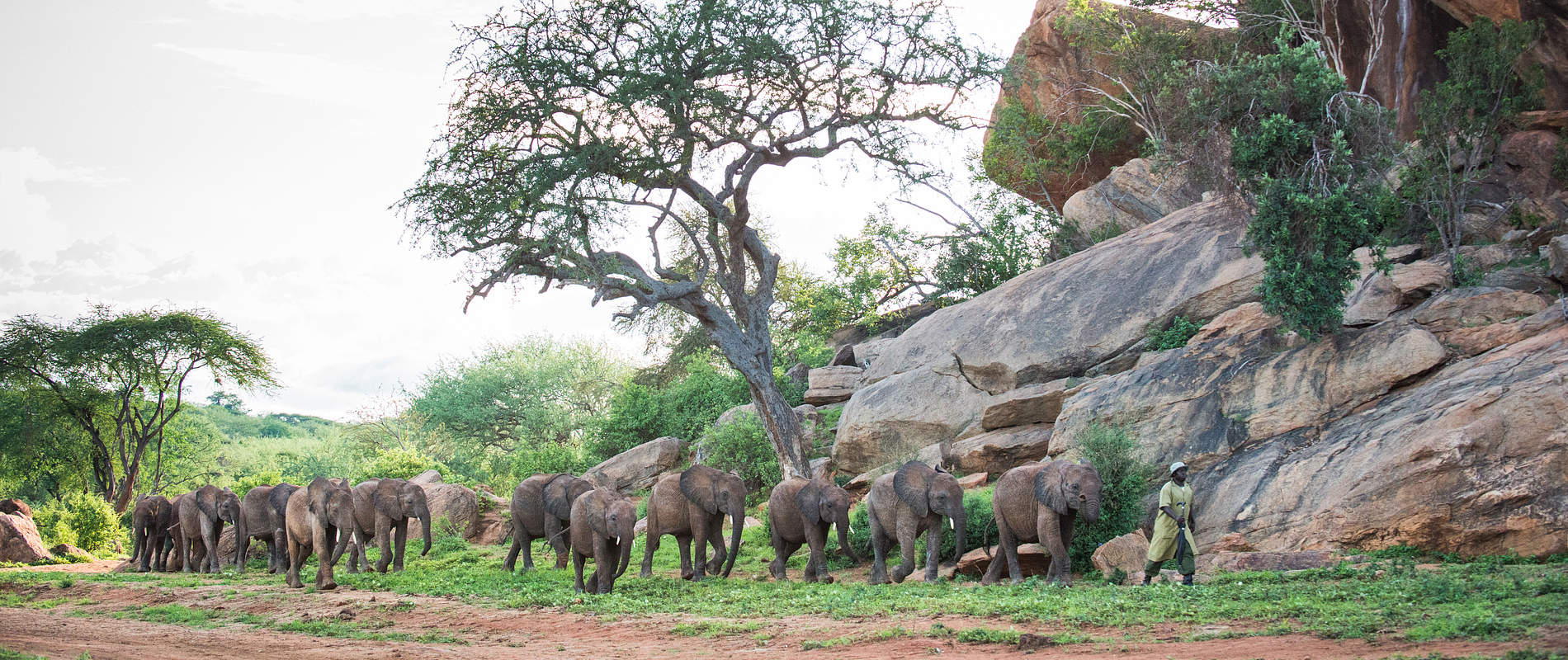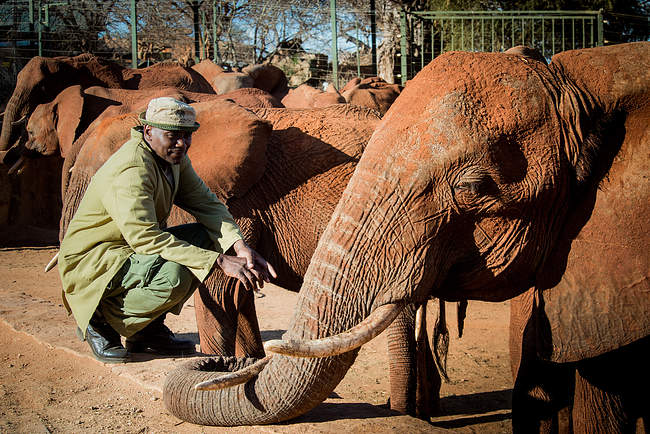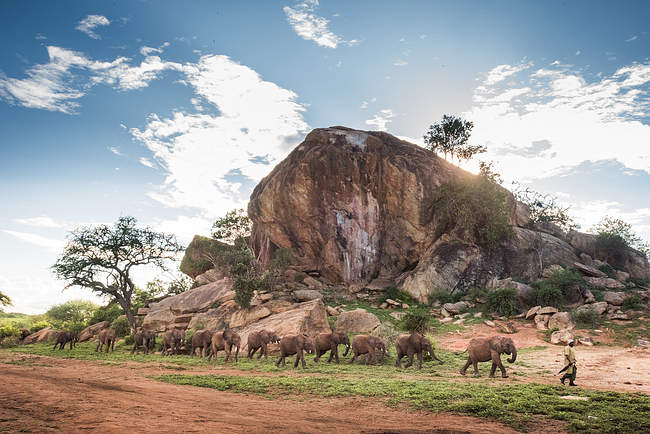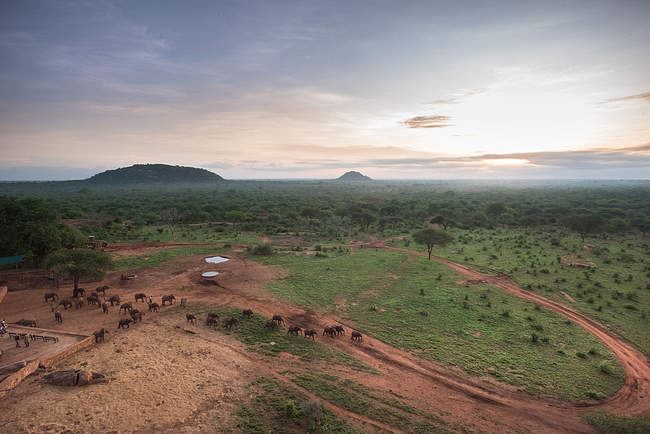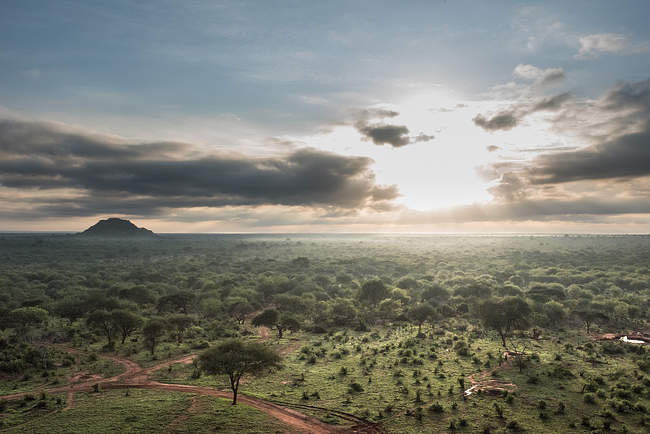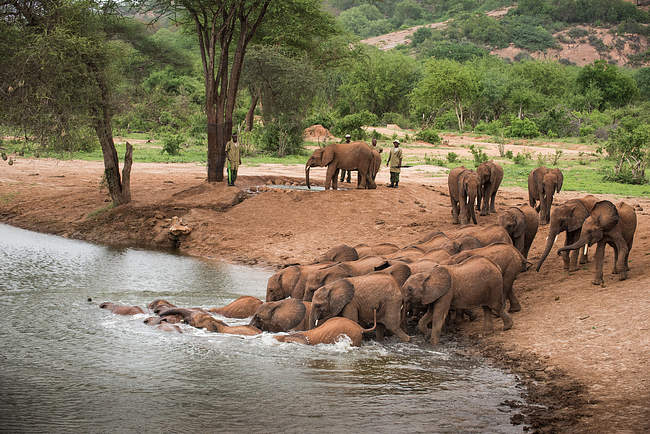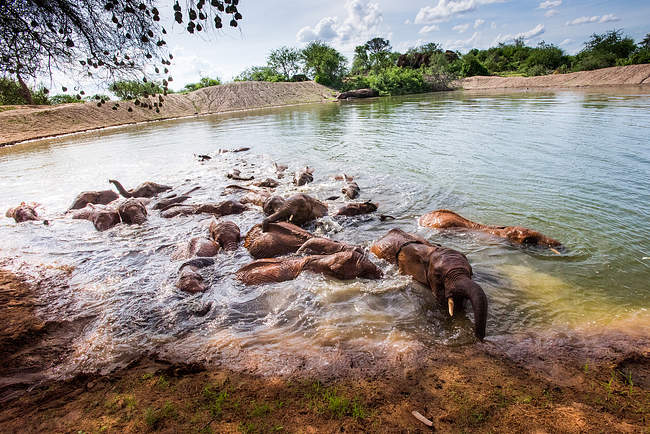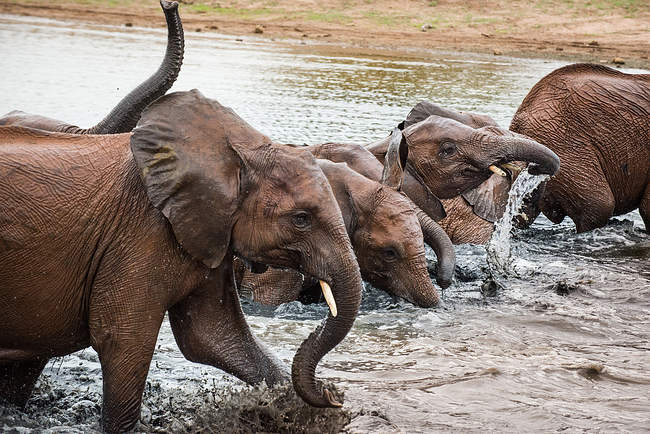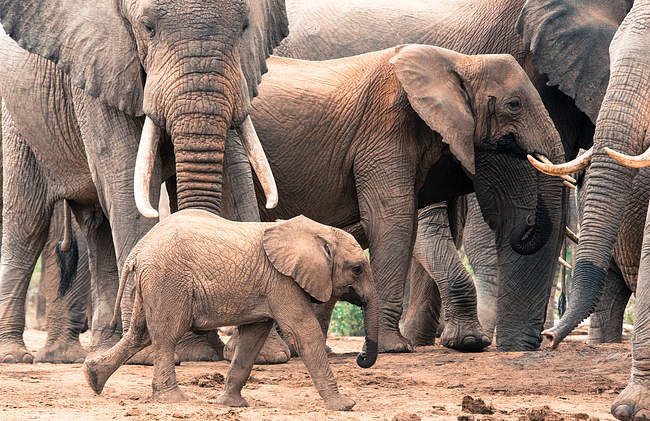In Tsavo, weaver birds are always our most reliable signifiers that the seasons are shifting. When they begin nesting, yellow wings flapping and beaks full of small branches, we know that rain is about two weeks off. The weaver birds built their nests in Ithumba early this year, and lo and behold, the rains followed shortly thereafter.

When he was the founding warden of Tsavo East National Park, David Sheldrick deemed this part of the park to be the “jewel in the crown.” While Ithumba shines year-round, in the rainy season, it truly dazzles. The parched red earth, newly saturated, becomes awash with green and buzzing with life. The atmosphere is charged with life; there are birds flitting to and fro, vervet monkeys darting from branch to branch, and insects buzzing around every blossom and bud.
The Ithumba orphans celebrate the rain with great enthusiasm. No detail of it escapes their delight; they spend their days seeking out rainwater puddles from which to drink or tasty new shoots on which to feast. When the clouds break and big raindrops begin falling from the sky, they can't contain their excitement. They immediately stop what they were doing and begin running around with glee, rolling on the ground, scooping up the wet soil and throwing it in the air.
The social dynamic changes a bit when the rains arrive too. Through our Water for Wildlife projects, we keep water sources continuously topped up to see wildlife through the difficult dry season. The secret is out, and wild elephants flock to Ithumba during these times, knowing it’s a safe haven to drink and browse. Given the newly lush conditions, however, the independent orphans and their wild friends have been venturing further afield and their visits home have been less frequent. We happily see them off, knowing what a glorious buffet they have waiting for them within Tsavo’s protected borders and what a time for celebration the green season is.
While the dependent orphans may see less of their wild friends during this time, they’re not suffering for entertainment. When grown elephants are in their midst, they know they must be deferential and respect the pecking order of elephant society. Now, they really have the run of the place — and they’re taking full advantage. Tsavo is a watery playground, just waiting for the orphans to dive in. With all the rains, there are now tantalising puddles around every corner. Sometimes, the Ithumba herd spends the whole day frolicking in these smaller, warmer pools. When it’s warm enough to venture into the main waterhole, they’re like little fish, slipping in one after the other and then paddling around en masse.
Of course, the orphans still encounter plenty of wild friends and ex orphans during this time of year — and earlier this month, they had the privilege of meeting a very special new addition. On 17th November, wild-living orphan Wendi strolled up to the Ithumba mud bath with a tiny little calf trotting behind her. We have named her daughter Wema, which means “goodness” in Swahili. Wema came into this world at its best; when all is all green and good. Looking around the sparking paradise that is Ithumba right now, a place that fosters new life and creates a future for so many vulnerable orphans, it feels a most apt name indeed.

